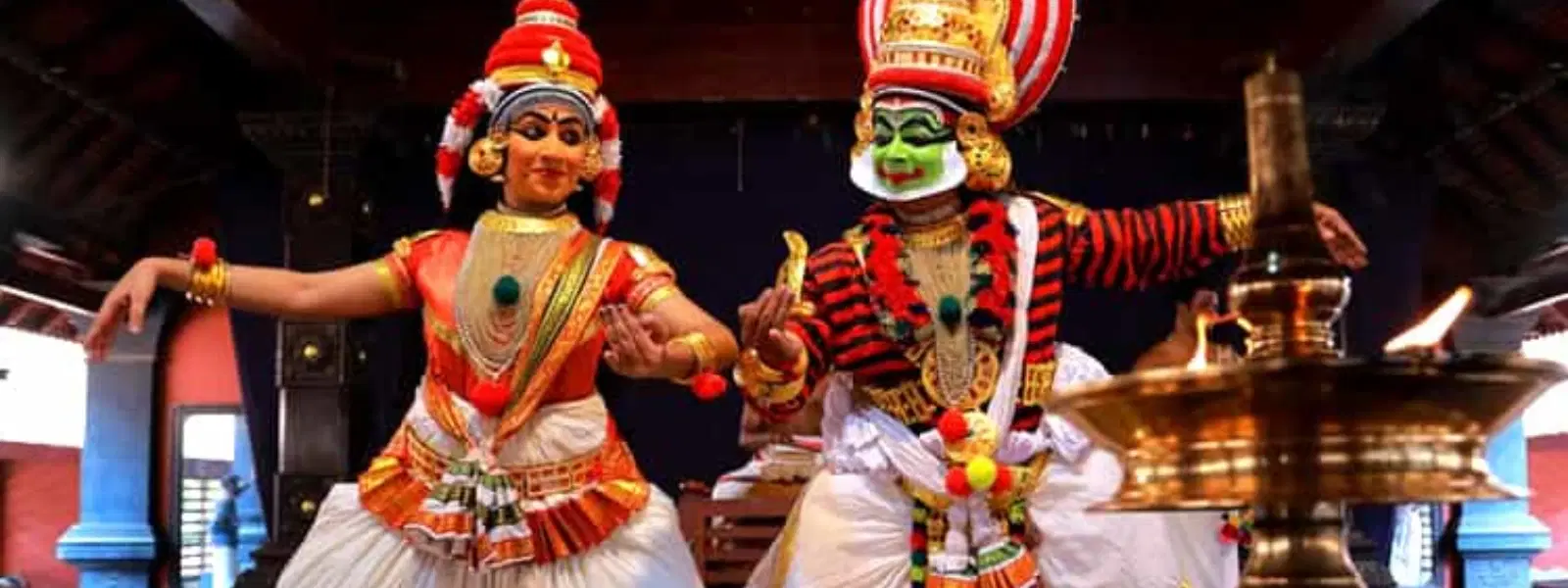
Flights
•02 min read

Kalaripayattu is a mesmerizing blend of art and combat, a timeless tradition that has thrilled martial arts enthusiasts for centuries. Originating from the heart of Kerala, this ancient martial art encapsulates the valor of a warrior culture, resonating with the spirit of both history and modern revival. This blog post answers some of the most frequently asked questions about Kalaripayattu, shedding light on its origins, techniques, training, and the cultural significance it holds in Kerala and beyond.
The roots of Kalaripayattu trace back to Kerala's rich warrior heritage. Legend has it that the art was created by Lord Parashurama, an incarnation of Vishnu, who bestowed this skill upon the people to aid them in defending their lands. Revered as one of the oldest Indian martial arts, Kalaripayattu influenced numerous fighting techniques over time, echoing through various ancient texts and folklore. Its storied past not only establishes its place in history but also highlights its role as a foundation for many Indian ancient fighting techniques.
Kalaripayattu is more than a martial discipline; it is a cultural phenomenon interwoven with Kerala's traditional martial arts and the state’s deep-seated warrior ethos. The practice has witnessed a revival in modern times, acting as a conduit to preserve Kerala's heritage. Today, its influence is seen in dance, theatrical performances, and even in innovative self-defense methods, making it an integral facet of Kerala's cultural identity.
The beauty of Kalaripayattu lies in its diversity. Training centers, predominantly located in Kerala, welcome enthusiasts from across the globe. These centers provide a comprehensive learning experience through specialized regimes that cater to varying levels of skill and commitment. There are two prominent styles of practice: the Northern style, which often emphasizes smooth flow and agility, and the Southern style, known for its more structured, forceful techniques. Both styles are celebrated as key pillars of South Indian combat techniques.

Kalaripayattu incorporates an extensive array of weapons such as swords, daggers, spears, and bows. Each weapon is coupled with unique fighting techniques that derive from intensive weapon-based combat and equally robust unarmed exercises. These self-defense methods are designed to build not only proficiency in combat but also impeccable body control and situational awareness.
Kalaripayattu training includes Marmashastram, the art of striking vital points, which is considered one of the most advanced combat techniques in the world.
Beyond combat, Kalaripayattu offers remarkable physical benefits. Regular practice enhances fitness, flexibility, and endurance, building a resilient body that is both agile and powerful. Athletes and enthusiasts alike attest to the improvement in their overall strength and coordination, making it a prime example of how ancient techniques positively affect Kalaripayattu physical fitness benefits.
The discipline required in mastering Kalaripayattu goes far beyond the physical. The rigorous training cultivates mental clarity, focus, and discipline. Practitioners often experience a significant reduction in stress as the art also incorporates elements of meditation and spirituality. This harmonious blend of body and mind supports a balanced lifestyle and remains a profound reason why many choose to immerse themselves in this ancient practice.

Kalaripayattu is an ancient martial art form originating from Kerala, known for its unique blend of physical combat techniques, weaponry, and spiritual practices.
According to Indian mythology, Kalaripayattu is believed to have been created by Lord Parashurama, an incarnation of Vishnu.
Fees for Kalaripayattu training vary depending on the training center and the level of expertise offered. Many centers in Kerala provide affordable options for beginners.
Kalaripayattu emphasizes discipline, respect for the guru, and adherence to safety protocols during training and combat.
Kalaripayattu training centers are primarily located in Kerala, but they can also be found in other parts of India and internationally.
Kalaripayattu is not merely a martial art—it is a living cultural treasure that embodies Kerala’s warrior spirit and ancient traditions. From its fascinating history and intricate techniques to the profound physical and mental benefits it offers, this art form continues to inspire and captivate martial arts enthusiasts across the globe. Embracing Kalaripayattu allows one to connect with a rich heritage and explore an insurmountable reservoir of strength and discipline.